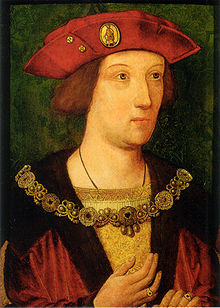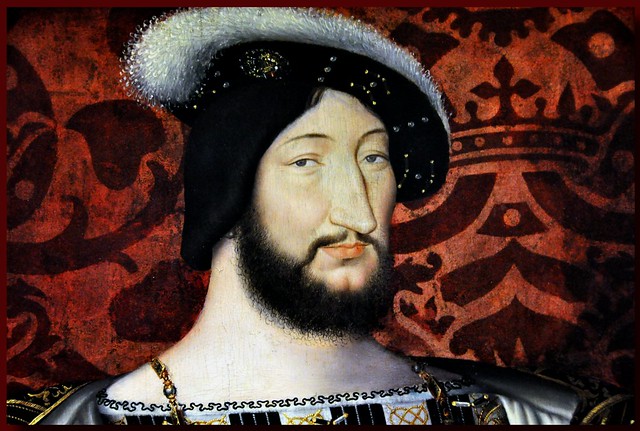[FONT="]Hey guys, so I haven't posted a TL in a while and I've been working on this as a side project. Theres likely numerous innacuracies and I encourage criticism if you view its due but I also encourage you to enjoy the story  I cant guarantee regular updates but I hope to be able to.[/FONT]
I cant guarantee regular updates but I hope to be able to.[/FONT]
[FONT="] King Arthur the Great: A Tudor TL
[/FONT]
[FONT="]A Timeline by Spamage[/FONT]
[FONT="]Chapter 1: The Waning Days of Henry VII[/FONT]
[FONT="]1502-1507

[/FONT]
[FONT="]1502-1507

[/FONT]
King Henry VII of England
In the year 1502 England appeared to be content. The monarchy was solid; the War of the Roses a distant memory, and the heir to the throne had received marriage to the popular foreign princess, Catherine of Aragon, daughter of the famed Ferdinand and Isabella. However that feeling of content would soon be shattered when a mere sickness almost threw the Kingdom into disarray.
Following his marriage, Prince Arthur was sent to Ludlow Castle along with his wife. He was supposed to preside over the Council of Wales and the Marches and he did so until March when both him and his wife fell ill with what we now know to be sweating sickness.
Both the Prince and Princess had up and down periods but the greatest scare came on April 2nd, 1505 when Arthur nearly died. For a few moments it was certain the would-be King was fading fast but he miraculously began to improve. His wife, Princess Catherine, recovered as well and by the end of April both were nearly fully restored to pre-sickness levels. This apparently sealed the unity the couple would be later known for and caused great affection to arise. Many said God was with the young Prince and had great plans for him and his wife was one of the biggest supporters of this idea.
The couple returned to London by the end of the year and the Prince was reunited with his mother who had been worried extensively over the health of her son. Even Henry VII showed a surprising breach of his normally reserved attitude and hugged his son on sight. Another sign Arthur’s parent’s gratefulness was an effort spearheaded by Queen Elizabeth to create a positive relationship with her daughter-in-law, something she had not enjoyed with Henry’s mother. The two women did indeed develop a bond and became quick friends despite the age and language barriers which partially prevented much communication.
Language appeared to be an early struggle for Princess Catherine who could only communicate with her husband through Latin, but she gradually began picking up English and displayed herself an exceptionally bright student. By the dawn of the year 1503 conditions in the Kingdom looked even better than they had just one mere year prior. The Queen was pregnant with another child, good royal relations were being fostered, and the heir to the throne was healthy along with his wife.
In February 1503 Queen Elizabeth went into labor. She soon gave birth to a daughter whom the couple quickly named Princess Katherine. Both mother and daughter were healthy and celebrations ensued. It is presently unclear where the name Katherine came from but the majority of courtiers and Princess Catherine herself thought it was named after her, due to her surprisingly fast friendship with her daughter in law. The Queen herself never confirmed these rumors but did indeed invite Catherine to be one of the child’s godparents along with Louis XII or France, Margaret Beaufort, and King Manuel I of Portugal. The 2 Kings used stand ins at the baptism.
Other than the birth of Princess Katherine 1503 proved to be very un-notable with the exception of the marriage between Margaret Tudor and James IV. The marriage was largely a political match because of Henry’s attempts to break the Auld Alliance which he would die realizing was a failure. Regardless, Princess Margaret would depart in June and would arrive in Scotland shortly after where she would attempt to devote her life to improving relations between her mother and daughter countries.
In 1504 the influence of Princess Catherine was greatly lessened. Her mother died in November and not only was the Princess inconsolable, she found her position lessened and realized had she not been married to Arthur there was a high probability that she would have died an old maid. Henry VII himself was somewhat melancholy about the loss and apparently commented “that was some woman” in reference to the Queen. The 2 had been haggling partners primarily in the engagement of Arthur to Catherine and now only Ferdinand remained and he was somewhat more of a hard bargainer that his wife. Arthur consoled his wife and it appears their relationship bean to go from an awkward teen marriage to a legitimate state from this period on as Catherine found herself pregnant in January 1505. She was 19 and her husband was 18. The pregnancy was relatively smooth and in August she withdrew from court and went into the expected period of seclusion. Finally on September 21st, 1505 a baby boy was born to the couple. Both Arthur and King Henry were elated and the child was quickly named Henry in order to honor the King. Only one person in the royal family was pessimistic about the birth however, and that was the 14 year old Prince Henry who had continually seen his position diminish, first from Margaret becoming a foreign Queen, and now to him being demoted to 3rd in line to the throne. The prince apparently was very hard to deal with and was privately referred to by some of is tutors as “a brat”. Even so, marriage negotiations soon began for the 14 year old who was eventually decided to take the infant Ursula Pole as his one day wife in order to secure the Tudor power over the throne and inter mix their blood with those of the Plantagenet’s. Margaret Pole was the primary negotiator as she feared for both her and her children’s safety under Henry VII who had had her brother executed and had revealed he was not comfortable with the Pole family. By marrying her daughter she ensured not only political power for her family in some form but also protection. It was a surprising, yet genius idea.
By 1506 the King’s health soon began to decline. In May of the year both Queen Elizabeth and Princess Catherine announced their pregnancies. Prince Henry the young (Arthur’s son) was now 1 year old and many royal nobles were hoping for yet another son so Henry VII could die knowing his throne was secure. Queen Elizabeth went into labor in November and the child was a stillborn boy. The couple was devastated and Elizabeth never began to really recover due to her grief. In fact she went into decline and by the beginning of December her condition was terrible. By the 15th of that very same month she was dead. King Henry VII was extremely devastated and began mourning. Therefore it seemed somewhat awkward when Princess Catherine went into labor on the 22nd of December, the day of the Queen’s funeral. A daughter was born and was without question named Princess Elizabeth. The birth of the baby was slightly uplifting to the King but his health ultimately began declining as well. He refused to celebrate Christmas on the 25th of December 1506 and throughout the spring of 1507 he developed a cough that steadily got worse. The King lost part of his will to live and went into extended mourning before being forced to go to bed rest due to pure exhaustion caused by grief. Arthur became the de facto ruler during this period and on April 11th, 1507 King Henry VII passed away. In 1 year the Kingdom had went from having 2 healthy monarchs to a dead King and Queen. Prince Arthur was now due to ascend to the throne following the funeral of his father at the end of April at the age of 20.
Last edited:



